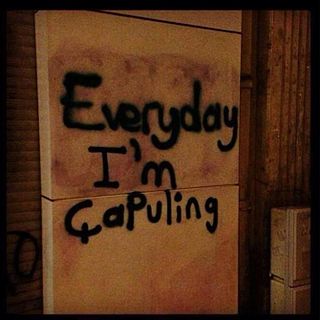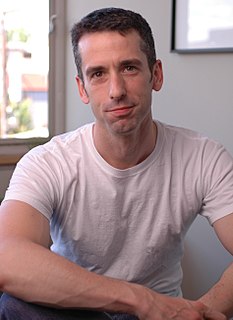 W
W"Big Beautiful Woman" is a euphemism for an overweight woman.
 W
WChapulling is a neologism originating in the Gezi Park protests, coined from Prime Minister Erdoğan's use of the term çapulcu to describe the protesters. Pronounced // in Turkish, çapulcu was rapidly reappropriated by the protesters, both in its original form and as the anglicized chapuller and additionally verbified chapulling, given the meaning of "fighting for your rights". Chapulling has been used in Turkish both in its anglicized form and in the hybrid word form çapuling.
 W
WA chernomyrdinka or a chernomyrdinism is a quotation, often a malapropism or a gaffe, attributed to the former Russian prime minister Viktor Chernomyrdin. Many of them entered the everyday Russian lexicon. The most famous example is "We wanted the best, but it turned out the same as always", uttered in the context of Russia's efforts in economic reforms, namely the monetary reform in Russia, 1993. Chernomyrdin did not try to be smart, chernomyrdinkas were produced naturally. Even when they sounded funny, people have found a deeper meaning in them They were produced after the dissolution of the Soviet Union, and country leadership, including Chernomyrdin, attempted to speak "not from the paper sheet" and without bureaucratisms typical of late Soviet Union. Russian journalist Dmitry Travin writes that chernomyrdinkas often reflected the spirit of the epoch better than thick books of writers and philosophers.
 W
WClickbait is a text or a thumbnail link that is designed to attract attention and to entice users to follow that link and read, view, or listen to the linked piece of online content, with a defining characteristic of being deceptive, typically sensationalized or misleading. A "teaser" aims to exploit the "curiosity gap", providing just enough information to make readers of news websites curious, but not enough to satisfy their curiosity without clicking through to the linked content. Click-bait headlines add an element of dishonesty, using enticements that do not accurately reflect the content being delivered. The "-bait" part of the term makes an analogy with fishing, where a hook is disguised by an enticement (bait), presenting the impression to the fish that it is a desirable thing to swallow.
 W
WCocacolonization refers to the globalization of American culture pushed through popular American products such as soft drink maker Coca-Cola. It is a portmanteau of the name of the multinational soft drink maker and "colonization".
 W
WThe conservative wave, or blue tide, is a right-wing political phenomenon that emerged in the mid-2010s in Latin America as a direct reaction to the pink tide.
 W
WDigiscoping is a neologism for afocal photography, using a (digital) camera to record distant images through the eyepiece of an optical telescope.
 W
WThe term digital native describes a young person who has grown up in the digital age, in close contact with computers, the Internet, and video game consoles, and later mobile phones, social media, and tablets. The term is often used to refer to millennials, Generation Z, and Generation Alpha; the latter two are sometimes described as distinct "neo-digital natives", "true" digital natives, or "digital integrators".
 W
WDocufiction, often confused with docudrama, is the cinematographic combination of documentary and fiction, this term often meaning narrative film. It is a film genre which attempts to capture reality such as it is and which simultaneously introduces unreal elements or fictional situations in narrative in order to strengthen the representation of reality using some kind of artistic expression.
 W
WEnvironmental technology (envirotech), green technology (greentech) or clean technology (cleantech) is the application of one or more of environmental science, green chemistry, environmental monitoring and electronic devices to monitor, model and conserve the natural environment and resources, and to curb the negative impacts of human involvement. The term is also used to describe sustainable energy generation technologies such as photovoltaics, wind turbines, bioreactors, etc. Sustainable development is the core of environmental technologies. The term environmental technologies is also used to describe a class of electronic devices that can promote sustainable management of resources.
 W
WEurabia is a political neologism, a portmanteau of Europe and Arabia, used to describe a far-right Islamophobic conspiracy theory, involving globalist entities allegedly led by French and Arab powers, to Islamise and Arabise Europe, thereby weakening its existing culture and undermining a previous alignment with the U.S. and Israel.
 W
WEuropean Islam or Modern Islam is a hypothesized new branch of Islam that historically originated and developed among the indigenous White European peoples of the Balkans and Southeastern Europe: Bosnia and Herzegovina, Albania, Kosovo, Montenegro, Bulgaria, and some Russian Republics, which constitute of large populations of native White European Slavic Muslims, although the majority are secular.
 W
WFreemium, a portmanteau of the words "free" and "premium", is a pricing strategy by which a basic product or service is provided free of charge, but money is charged for additional features, services, or virtual (online) or physical (offline) goods that expand the functionality of the free version of the software. This business model has been used in the software industry since the 1980s. A subset of this model used by the video game industry is called free-to-play.
 W
WEl FUA is an Internet meme involving a viral YouTube video of an intoxicated Mexican man called Julio César Segura, who claims to have divine powers, including fortune-telling and revival of the dead.
 W
WFull spectrum diplomacy is a combination of traditional, government-to-government diplomacy with the many components of public diplomacy as well as the integration of these two functions with other instruments of statecraft. The term was coined by Dr. John Lenczowski, the founder and president of the Institute of World Politics in Washington, D.C. in his book Full Spectrum Diplomacy and Grand Strategy: Reforming the Structure and Culture of U.S. Foreign Policy which was released in May, 2011.
 W
WGiclée is a neologism coined in 1991 by printmaker Jack Duganne for fine art digital prints made on inkjet printers. The name was originally applied to fine art prints created on a modified Iris printer in a process invented in the late 1980s. It has since been used loosely to mean any fine-art printing, usually archival, printed by inkjet. It is often used by artists, galleries, and print shops to suggest high quality printing, but is an unregulated word with no associated warranty of quality.
 W
WA gireogi appa is a South Korean term that refers to a man who works in Korea while his wife and children stay in an English-speaking country for the sake of the children's education. The term is inspired by the fact that geese are a species that migrate, just as the gireogi appa father must travel a great distance to see his family. Estimates of the number of gireogi appa in South Korea range as high as 200,000 men. The word 'gireogi appa' was included in the report '2002 New Word' by the National Academy of Korean Language.
 W
WGooglization is a neologism that describes the expansion of Google's search technologies and aesthetics into more markets, web applications, and contexts, including traditional institutions such as the library. The rapid rise of search media, particularly Google, is part of new media history and draws attention to issues of access and to relationships between commercial interests and media.
 W
WHaigui is a Chinese language slang term for Chinese people who have returned to mainland China after having studied abroad for several years. These graduates from foreign universities used to be highly sought out by employers in China, but at least one study has indicated they are now less likely to receive callback from jobs compared to Chinese students with a Chinese degree, possibly because the salary demands of haigui are considered unrealistically high by some employers.
 W
WHauntology is a concept referring to the return or persistence of elements from the past, as in the manner of a ghost. It is a neologism first introduced by French philosopher Jacques Derrida in his 1993 book Spectres of Marx. It has since been invoked in fields such as visual arts, philosophy, electronic music, politics, fiction and literary criticism.
 W
WHealth security is a concept that encompasses activities and measures across sovereign boundaries that mitigates public health incidents to ensure the health of populations. It is an evolving paradigm within the fields of international relations and security studies. Proponents of health security posit that all states have a responsibility to protect the health and wellbeing of their populations. Opponents suggest health security impacts civil liberties and the equal distribution of resources.
 W
WHeroin chic was a look popularized in early-1990s fashion and characterized by pale skin, dark circles underneath the eyes, a very skinny body, dark red lipstick, stringy hair, and an angular bone structure. American "first" supermodel Gia Carangi, is remembered for being the original "heroin chic model" The look, characterised by emaciated features and androgyny, was a reaction against the "healthy" and vibrant look of models such as Cindy Crawford, Elle Macpherson, and Claudia Schiffer. A 1996 article in the Los Angeles Times stated that the fashion industry had "a nihilistic vision of beauty" that was reflective of drug addiction.
 W
WJiggle television is a term coined by NBC executive Paul Klein to criticize ABC's television production and marketing strategy under Fred Silverman.
 W
WThe portmanteau coinages kidult, rejuvenile, adultescent refer to adults with interests traditionally seen as suitable for children. A kidult is also a person who claims to be a kid at heart, whilst endulging in forms of media meant for children, or a person who shows signs of Peter Pan Syndrome. It can also mean a parent who acts childish with their children, but does not take on their duties as a disciplinarian.
 W
WMamil is an acronym and a pejorative term for a "middle-aged man in lycra" – that is, men who ride an expensive racing bicycle for leisure, while wearing body-hugging jerseys and bicycle shorts.
 W
WMushroom management, also known as pseudo-analysis or blind development, is the management of a company where the communication channels between the managers and the employees do not work traditionally. The term mushroom management alludes to the stereotypical view of mushroom cultivation: kept in the dark and fed bullshit.
 W
WGiven names of Soviet origin appeared in the early history of the Soviet Union, coinciding with the period of intensive word formation, both being part of the so-called "revolutionary transformation of the society" with the corresponding fashion of neologisms and acronyms, which Richard Stites characterized as a utopian vision of creating a new reality by means of verbal imagery. They constituted a notable part of the new Soviet phraseology.
 W
WThe New Soviet man or New Soviet person, as postulated by the ideologists of the Communist Party of the Soviet Union, was an archetype of a person with specific qualities that were said to be emerging as dominant among all citizens of the Soviet Union, irrespective of the country's cultural, ethnic, and linguistic diversity, creating a single Soviet people and Soviet nation.
 W
WNon-binary or genderqueer is a spectrum of gender identities that are not exclusively masculine or feminine—identities that are outside the gender binary. Non-binary identities can fall under the transgender umbrella, since many non-binary people identify with a gender that is different from their assigned sex. Another term for non-binary is enby.
 W
WOlim L'Berlin was the name of a Facebook page that coined a snowclone in 2014, and was terminated in early 2015. Comparing the high cost of living in Israel with the comparatively cheaper economic climate in Berlin, which has a growing community of Israeli expatriates, the page urged more Israelis to move to Germany, raising a storm of protest in Israeli social and political circles. Compounding the reaction was the Facebook page's use of the same verb (olim) that Jews use for aliyah.
 W
WPhubbing is a term coined as part of a linguistic experiment by Macquarie Dictionary to describe the habit of snubbing someone in favour of a mobile phone. In May 2012, the advertising agency behind the campaign, McCann, had invited a number of lexicographers, authors, and poets to coin a neologism to describe the behaviour. The word "phubbing," a portmanteau of phone and snubbing, was first described by McCann Group Account Director Adrian Mills, who was working with David Astle. The term has appeared in media around the world and was popularized by the Stop Phubbing campaign created by McCann.
 W
WPoverty porn, also known as pornography of poverty, development porn, famine porn, or stereotype porn, has been defined as "any type of media, be it written, photographed or filmed, which exploits the poor's condition in order to generate the necessary sympathy for selling newspapers, increasing charitable donations, or support for a given cause". It also suggests that the viewer of the exploited protagonists is motivated by gratification of base instincts. It is also a term of criticism applied to films that objectify people in poverty for the sake of entertaining a privileged audience.
 W
WPutler is a neologism formed by merging the names of Russian president Putin and German dictator Hitler. Often used in the slogan "Putler Kaput!" and by people opposed to Putin. The term has a negative ideological connotation.
 W
WQueer theology is a theological method that has developed out of the philosophical approach of queer theory, built upon scholars such as Michel Foucault, Gayle Rubin, Eve Kosofsky Sedgwick, and Judith Butler. Queer theology begins with an understanding that gender variance and queer desire have always been present in human history, including faith traditions and their sacred texts such as the Christian Bible. It was at one time separated into two separate theologies; gay theology and lesbian theology. Later, the two would merge to become the more inclusive term of queer theology.
 W
W"Radical chic" is a term coined by journalist Tom Wolfe in his 1970 essay "Radical Chic: That Party at Lenny's" to describe the adoption and promotion of radical political causes by celebrities, socialites, and high society. In languages such as American English, French and Italian the term has become widely used to indicate people identifying themselves as socialists or radical leftists while conducting upper-class lifestyles.
 W
WRumpology or bottom reading is a pseudoscience akin to physiognomy, performed by examining crevices, dimples, warts, moles and folds of a person's buttocks in much the same way a chirologist would read the palm of the hand.
 W
WSavage Love is a syndicated sex-advice column by Dan Savage. The column appears weekly in several dozen newspapers, mainly free newspapers in the US and Canada, but also newspapers in Europe and Asia. It started in 1991 with the first issue of the Seattle weekly newspaper The Stranger.
 W
WIn phenology, season creep refers to observed changes in the timing of the seasons, such as earlier indications of spring widely observed in temperate areas across the Northern Hemisphere. Phenological records analyzed by climate scientists have shown significant temporal trends in the observed time of seasonal events, from the end of the 20th century and continuing into the 21st century. In Europe, season creep has been associated with the arrival of spring moving up by approximately one week in a recent 30-year period. Other studies have put the rate of season creep measured by plant phenology in the range of 2–3 days per decade advancement in spring, and 0.3–1.6 days per decade delay in autumn, over the past 30–80 years.
 W
WSocialtainer (Korean: 소셜테이너) is the Korean language term for an entertainer or celebrity who is invested in social issues. The word is used heavily in South Korean media, especially in newspapers, and show business.
 W
WSynurbization refers to the effects of urbanization on the adaptation of wildlife, and how animals that live in urban environments versus nature environments differ. Urbanization, in terms of ecology, means developmental changes to the environment. These changes are often in benefit to humans. When applying synurbization to circumstances of urbanization where species have adapted, that adaptation does not occur by accident. Animals making adaptations to the environment change are often only doing so because of urban expansion into their current environments—e.g., the expansion of cities removing forested areas occupied species such as birds. Urbanization causes synurbization. Animals change behaviour as required for survival. Those species that better adapt and have favourable variations in traits ultimately have higher fitness. However, while some of the behavioural adaptations are favourable for the species, consequences stem from the urbanization and impact these species. In some cases, even humans are victims to these consequences.
 W
WThe Christmas season, also called the holiday season, or the festive season, is an annually recurring period recognized in many Western and other countries that is generally considered to run from November to early January.
 W
WAn unbirthday is an event celebrated on any or all days of the year which are not a person's birthday. It is a neologism which first appeared in Lewis Carroll's 1871 novel Through the Looking-Glass. The concept gave rise to "The Unbirthday Song" in the 1951 animated feature film Alice in Wonderland.
 W
WThe Unification Church of the United States, sometimes colloquially referred to as the "Moonies", is a religious movement in the United States of America. It began in the 1950s and 1960s when missionaries from Japan and South Korea were sent to the United States by the international Unification movement's founder and leader Sun Myung Moon. It expanded in the 1970s and then became involved in controversy due to its theology, its political activism, and the lifestyle of its members. Since then it has been involved in many areas of American society and has established businesses, news media, projects in education and the arts as well as taking part in political and social activism, and has itself gone through substantial changes.
 W
WUrban Dictionary is a crowdsourced online dictionary for slang words and phrases, operating under the motto "Define Your World." The website was founded in 1999 by Aaron Peckham. Originally, Urban Dictionary was intended as a dictionary of slang or cultural words and phrases, not typically found in standard dictionaries, but it is now used to define any word, event, or phrase. Words or phrases on Urban Dictionary may have multiple definitions, usage examples, and tags. As of 2014, the dictionary had over seven million definitions, while around 2,000 new entries were being added daily.
 W
WUsonia is a word that was used by American architect Frank Lloyd Wright to refer to the United States in general, and more specifically to his vision for the landscape of the country, including the planning of cities and the architecture of buildings. Wright proposed the use of the adjective Usonian to describe the particular New World character of the American landscape as distinct and free of previous architectural conventions.
 W
WWaithood is a period of stagnation in the lives of young unemployed college graduates in various industrializing and developing nations or regions, primarily in the Middle East, North Africa (MENA) and India, where their expertise is still not widely needed or applicable. "Waithood" is described as "a kind of prolonged adolescence", and "the bewildering time in which large proportions of youth spend their best years waiting". It is a phase in which the difficulties youth face in each of these interrelated spheres of life result in a debilitating state of helplessness and dependency. One commentator argues, waithood can be best understood by examining outcomes and linkages across five different sectors: education, employment, housing, credit, and marriage.
 W
WWhale tail is the Y-shaped waistband of a thong or G-string when visible above the waistline of low-rise jeans, shorts, or a skirt that resembles a whale's tail. Popularized by a number of female celebrities including Christina Aguilera, Victoria Beckham, Mariah Carey, Paris Hilton and Britney Spears, displaying whale tails became popular in the early 2000s, together with the rise of low-rise jeans and thong underwear; but waned within the decade.
 W
WZone to Defend or ZAD is a French neologism used to refer to a militant occupation that is intended to physically blockade a development project. By occupying the land, activists aim to prevent the project from going ahead. The acronym "ZAD" is a détournement of "deferred development area". The ZADs are organized particularly in rural areas with an ecological or agricultural dimension, although the name has also been used by occupations in urban areas, for example in Décines-Charpieu and Rouen.